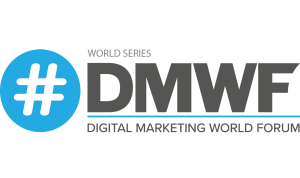Share

Hybrid and remote working has brought much-needed flexibility to the lives of many workers, however, it does come with some disadvantages for those working in roles – like marketing – that rely on collaboration to deliver creative ideas and campaigns. Optimzely’s director of technology and growth, Nicola Ayan, explores.
A recent report from Optimizely revealed that dispersed and remote work has impacted marketers’ abilities to drive creativity and provide strong customer experiences (CX). The findings show the pandemic significantly impacted marketing creativity, largely due to dispersed and remote teams, and a lack of effective technology and collaboration tools. So are marketers less creative in the new era of remote and hybrid work?
Does remote work hinder creativity?
Remote work makes it much harder for teams to collaborate and be creative. By its very nature, remote work means that employees are working separately from their colleagues and this means that fewer connections between team members are built. Since team members do not interact with each other in person as much as in the past, it makes it difficult for teams to be creative and benefit from widespread collaboration.
Nine in 10 marketers say that their ideas were better before the pandemic and that a dispersed workforce was impacting their creativity. Although marketers feel less creative in the era of remote and hybrid work, there are steps they can take to create a collaborative environment that inspires creativity from their team.
Provide greater visibility and promote inclusive collaboration
It’s no secret that since the pandemic, there’s been a preference for more flexible and hybrid roles. Gone are the days where effective communication, collaboration and communication can exclusively be done face-to-face. Now, it’s all about leveraging the right collaboration tools that provide greater visibility for everyone in the business, and support ideation across teams with a structured process.
For example, to promote inclusive ideation and collaboration, organisations can leverage technology to provide a way for all employees to be able to raise ideas and work requests efficiently to the marketing team. Consequently, marketers need to be able to prioritise those ideas and execute on them with the right governance and workflows in place. Visibility over intake management, ideation, collaboration, and execution will align teams on the organisation’s overall strategy without being impacted by hybrid and remote working.
Infuse creativity with science
Digitally mature marketing teams are not intimidated by science. They embrace a ‘test-and-learn’ culture and understand that experimentation is a key component to continuously innovate in an ever-changing landscape. They know that large investments do not guarantee success, and sometimes small changes can have a big impact.
Running experiments can help guide organisations in the right direction. When you don’t know the answer to a question, or if there are conflicting opinions in the team about an idea, there’s no better way to find out the answer by testing the idea. When experimentation is part of the culture of the team, ideation is democratised, and in the process, organisations will fail fast, learn fast, and win big.
Technology to improve the employee experience
The organisation’s expectations of their marketing teams and that of their CMO, have never been higher. According to Optimizely’s CEO, Alex Atzberger, digital marketing was not on the radar of a CMO a decade ago. Now, it is the number one priority. Customers are online, and so are employees.
Investing in the right digital experience platform is key and organisations need to take into account the employee experience when selecting the right technology. The technology needs to promote inclusive collaboration, confident content creation and offer customer foresight. It must empower marketers to continuously create and optimise customer experiences.
Creativity drives exceptional and innovative digital experiences
Remote and hybrid work won’t be going away anytime soon, so there is a real need for marketers to continue looking for ways to inspire creativity within their team. Since creativity is an essential ingredient for innovation, marketers must continue experimenting and building creative campaigns and experiences in this new way of working.
For example, leading e-commerce fashion retailers continue to prioritise creativity by looking for opportunities to reinvent and innovate their digital experience to meet consumer expectations. The retail business constantly makes improvements to its website by using technology to inform a proper, data-led approach. By prioritising creativity and unlocking the power of digital technologies, it has been able to lead the market, rather than follow.
The pandemic required all marketing teams to rethink not just how they define creativity, but how they inspire it and deliver creative experiences to customers. By implementing effective digital technologies that enhance creativity and encourage collaboration, marketers can ensure that they deliver exceptional digital experiences and unlock their digital potential.














